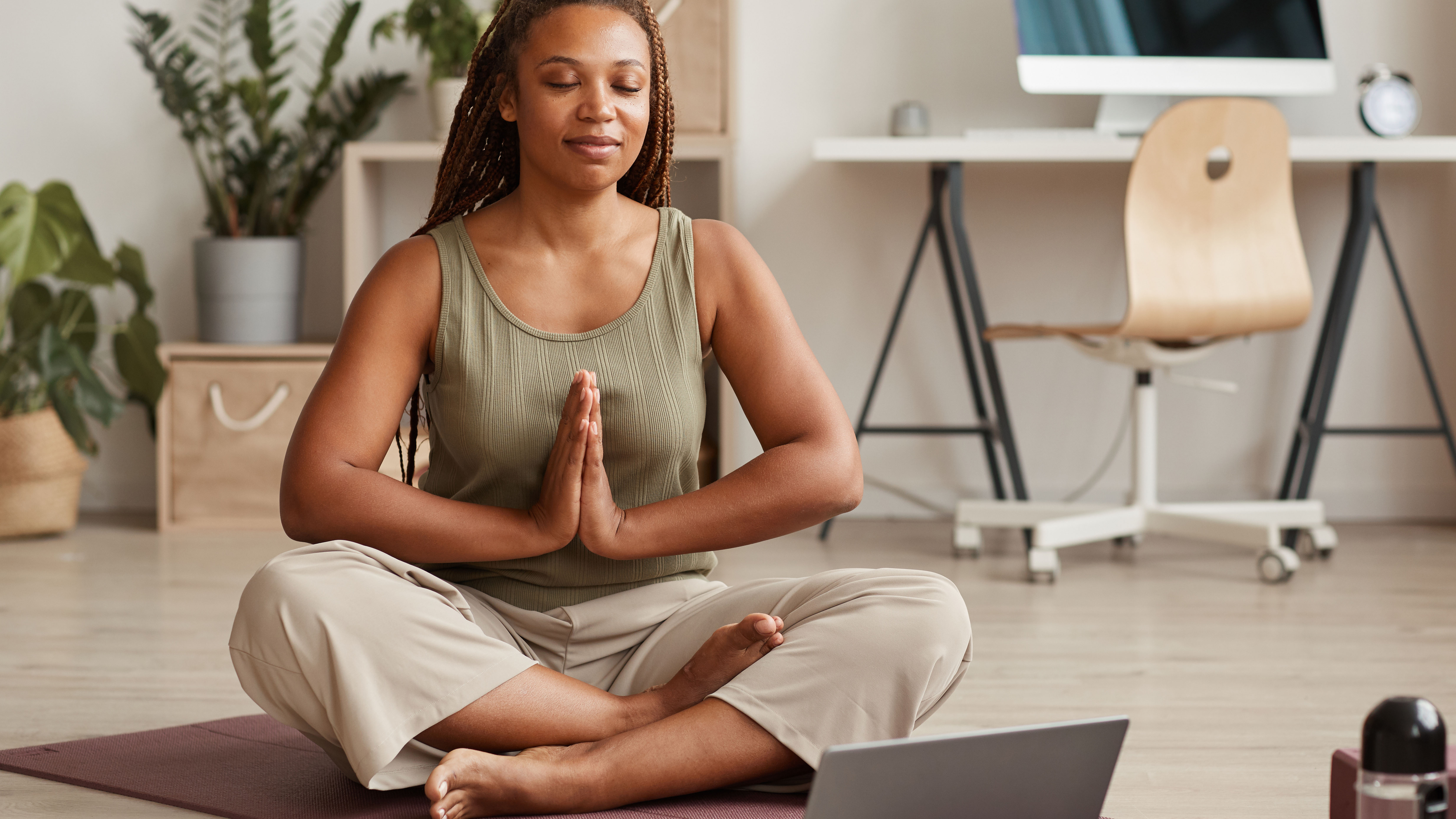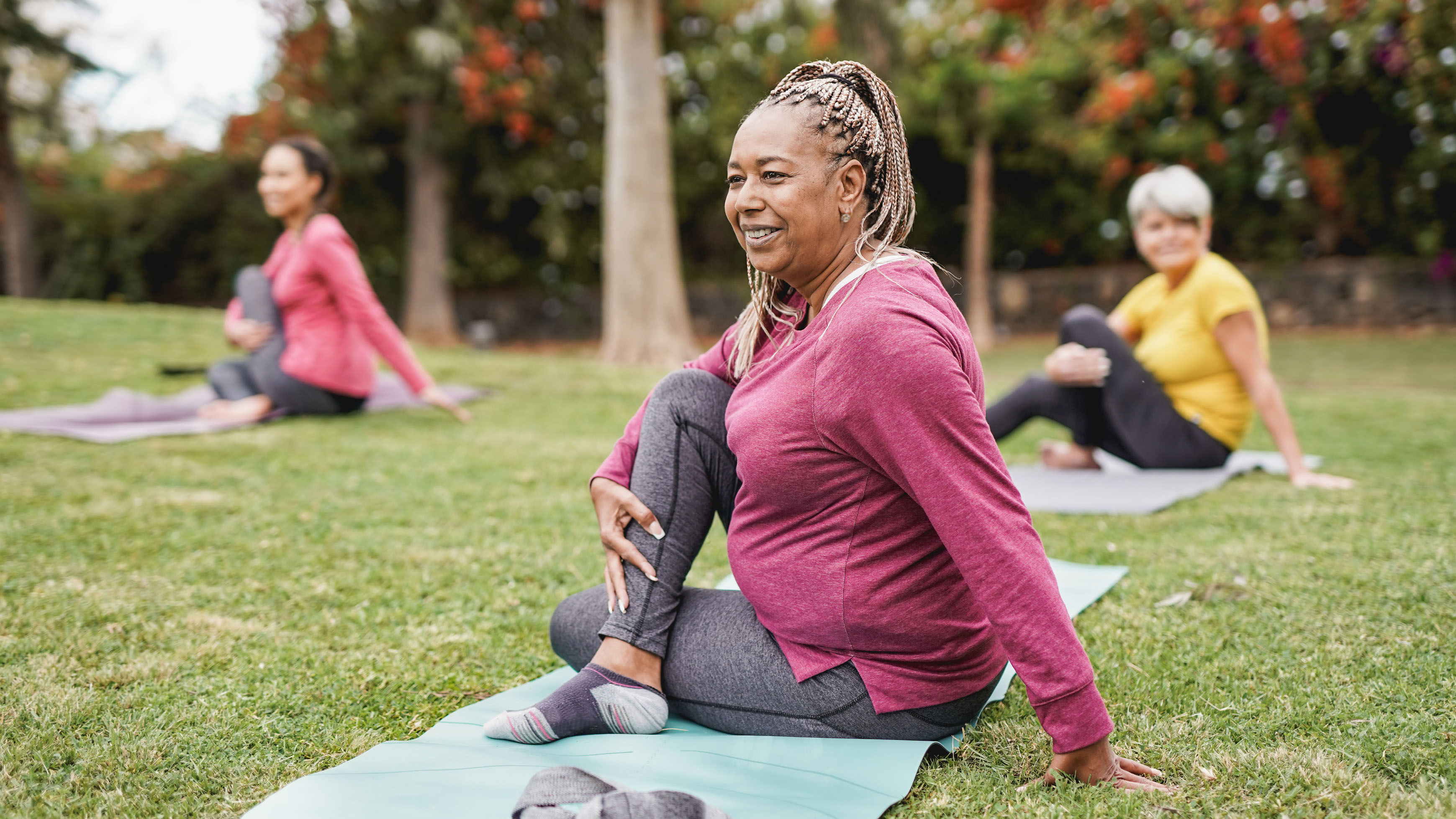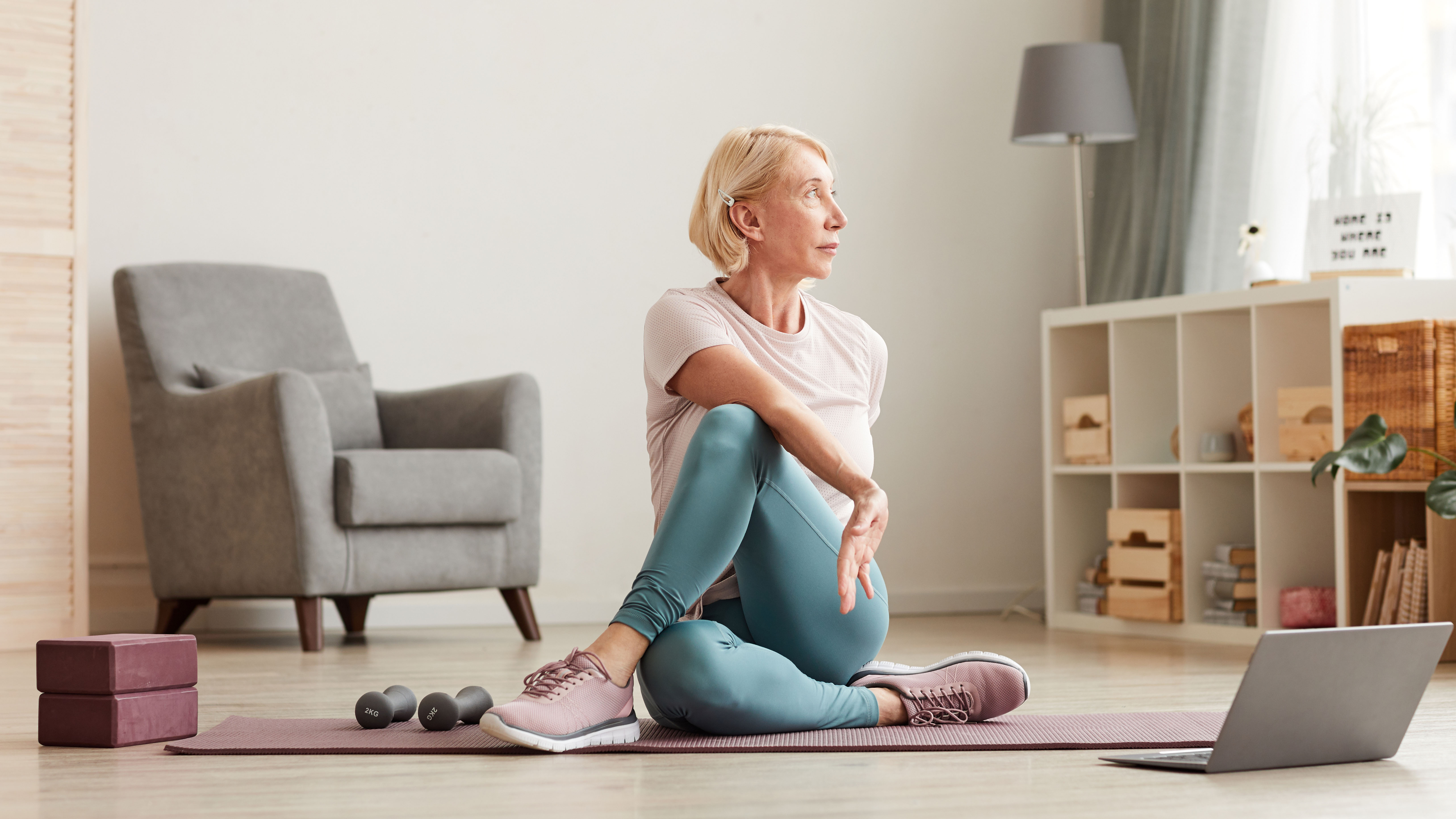Yoga and meditation: what are the real health benefits?
Yoga and meditation: a closer look at the science behind these ancient practices

Both yoga and meditation have been found to produce similar benefits, helping to improve your mental and physical health in various ways.
While meditation primarily works on your mind and thought patterns, yoga moves your body and can help improve your fitness. This isn’t to say that yoga doesn’t work with your mind and improve your mental health. Research has found that yoga can have a positive effect on your mental health too and meditation can also benefit you physically.
If you’re thinking of giving yoga or meditation a try, you might want to explore the best yoga mats available. It’s wise to have a comfortable mat to practice on and you may also need a meditation cushion or yoga props to help you get into trickier postures.
What are the proven effects of meditation?
Various studies have found that meditation can improve mental health. One meta-analysis of randomized controlled trials, published in the Depression and Anxiety journal, found 25 different studies showing that meditation can alleviate symptoms of anxiety.
Meditation has also been found to have some physical health benefits. A study in the Journal of Alternative and Complementary Medicine found that meditating can temporarily lower our heart and breath rate. This suggests that meditation is useful for reducing our body’s ‘sympathetic activity’ and placing us in a state of rest (useful if you’re stressed out.)
A Harvard study also found that meditation could also change your genes. People who meditated over an 8-week period saw a change in the expression of 172 genes that regulate inflammation, circadian rhythm and glucose metabolism. This links to a decrease in their blood pressure. However, this study was small and didn’t include a comparison group of non-meditators so the results should be considered with caution.

What are the proven effects of yoga?
Yoga is not so different from meditation regarding the benefits it’s been shown to produce, particularly when it comes to mental health benefits.
Get the world’s most fascinating discoveries delivered straight to your inbox.
A clinical trial published in the Alternative Therapies in Health and Medicine found that regular yoga decreased self-reported symptoms of depression in a small group of adults. And the Complementary Therapies in Clinical Practice Journal published a study that demonstrated reduced levels of anxiety in a group of women who attended regular yoga classes.
However, yoga offers additional physical benefits that you don’t get with meditation. For example, yoga has been shown to improve cardiovascular health. The Indian Journal of Physiology and Pharmacology published a comparative study that concluded that yoga reduces the age-related deterioration in cardiovascular functions.

It also improves flexibility — the International Journal of Yoga published a study showing significant flexibility improvements in athletes who took a 10-week course of yoga.
Other research has shown that yoga can help with pain management. The journal Pain published a study that observed participants who had experienced non-specific chronic low back pain. They compared Iyengar yoga therapy to an education control group. Both of the programs were 16 weeks long. The study concluded that there were ‘significant reductions in pain intensity (64%), functional disability (77%) and pain medication usage (88%) in the yoga group at the post and 3-month follow-up assessments.’
How does yoga incorporate meditation?
Both yoga and meditation require a certain level of concentration and focus, allowing you to experience what it’s like to be present. This present moment awareness is what helps to calm the mind, relieving feelings of depression and anxiety. It helps us activate our parasympathetic nervous system, our rest and digest function, which reduces our stress levels and lowers our heart rate.

Yoga can be said to incorporate meditation techniques because of the concentrated focus you apply while holding postures. While holding a posture, you’re focusing on sensations in your body and your breath, similar to what you might do during a breath meditation, for example. Because of this, it has the ability to help ease mental health concerns and can be effective in altering our thoughts and habits, just as meditation can. Yoga is not only a physical practice but a mental one too.
Our expert, Sarah Robinson, is a UK Bath-based yoga teacher and writer who holds an MSc in Psychology & Neuroscience. She comments, “As a practice, many would say that yoga incorporates the ritual of focus and meditation as much as the physical poses and breathwork that are more visually obvious to observers. The tangible benefits of yoga — such as the ability to touch your toes, are easier to record quantitatively than, say, how calm you feel after meditating. Internal practices will always be more challenging to explore.
“The impacts of both yoga and meditation on various cognitive and behavioral functions are many; from structural alterations in the brain and improved brain function, to benefits on mental health, reduction in symptoms of anxiety, and greater concentration.”

Sarah Robinson is a yoga teacher and author based in Bath, UK. Her background is in science; she holds an MSc Psychology & Neuroscience and has studied at Bath, Exeter and Harvard University. You can see more of her work at sentiayoga.com
How often do you need to practice to see the benefits?
As with anything, the more you practice it the better you become at it. Our brains work the same as our bodies. Just as repetition at the gym helps build our muscles, repetition of yoga and meditation helps build our concentration and stamina, whether that’s for holding a yoga posture or sitting for meditation. Both practices require us to keep practicing focusing on one thing at a time.
Sarah Robinson shares her thoughts on how often you should practice, “Yoga and meditation are open to anyone, whether you are interested in the research or not. I like the term ‘what you practice grows stronger’. Your abilities will strengthen if you practice physical balance, such as through yoga asana. Likewise, your ability will improve if you practice meditation techniques such as singular focus. As with many exercises, several times a week is ideal, but something is always better than nothing.”

Kat has a Master's degree in Psychology from the University of Glasgow, with her dissertation focusing on the impact of mental health and deprivation on connection with urban nature. She also has over 10 years of yoga teaching experience with further training in supporting injured students. She is qualified to teach Yin Yoga, Hormone Yoga Therapy and more traditional forms of Hatha yoga. Published in T3, Fit and Well, Tech Radar and Ekhart Yoga to name a few, she also has a certificate as a Yoga Therapy Practitioner. Kat previously worked with those impacted by severe mental illness.


